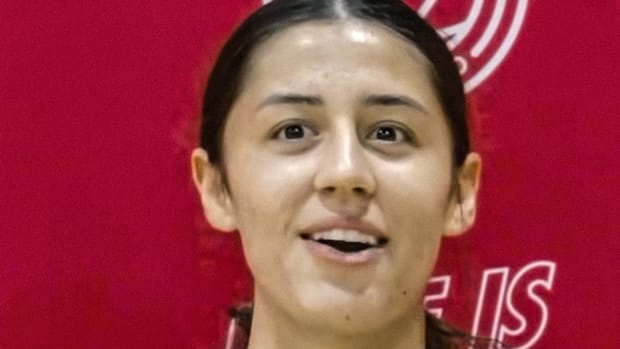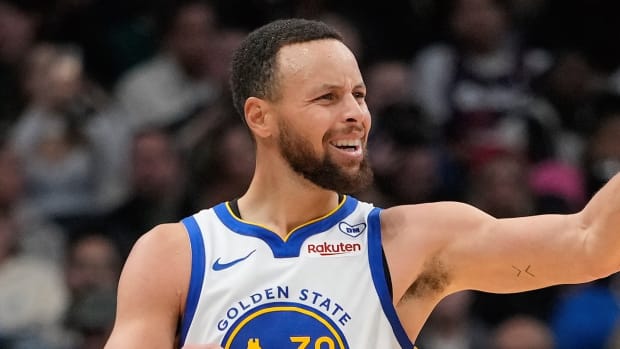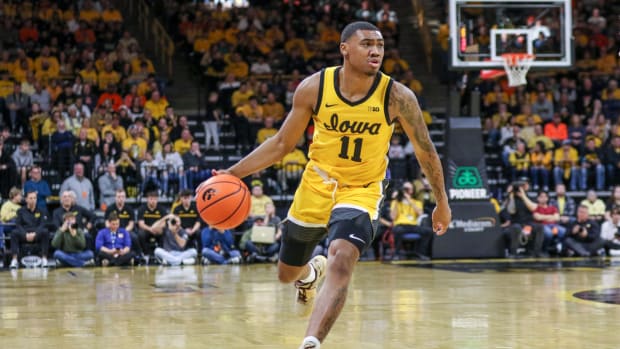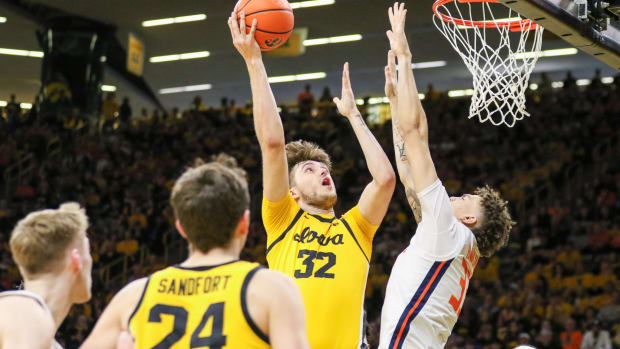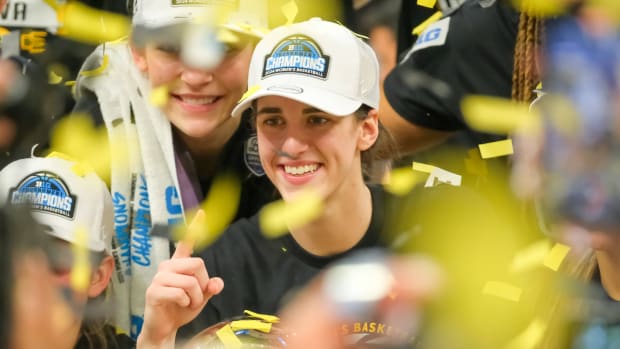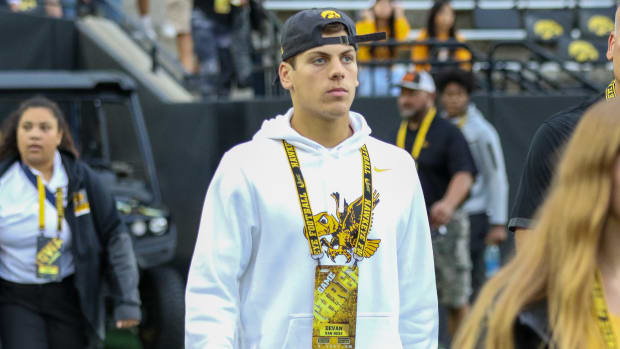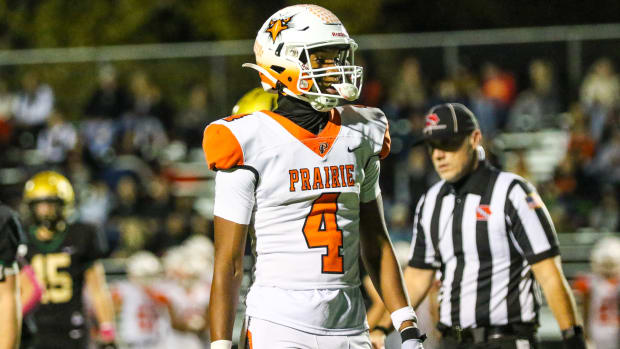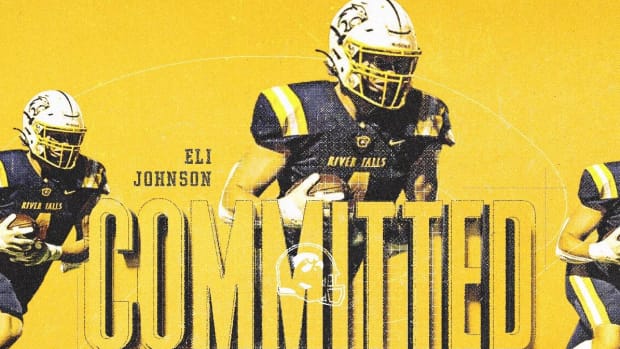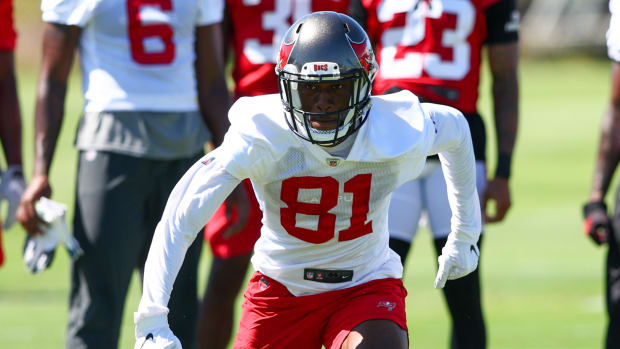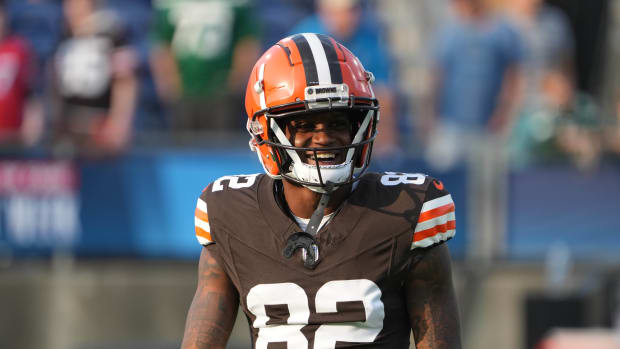Iowa's Voluntary Workouts Will Be About Minimizing Risk
Gary Barta knows there is a risk to reopening Iowa’s athletic facilities and going forward with voluntary summer workouts.
Barta, Iowa’s athletics director, also knows there may be athletes who have concerns about coming back to campus during the COVID-19 pandemic.
“As long as the virus is here, and until a vaccine is created, there will be risk,” he said during a Thursday video conference with media members. “No matter what we do, we cannot eliminate risk. We will work to mitigate it, and then people will have to make that choice.”
The gradual reopening of Iowa’s athletic facilities, closed in mid-March when the campus was shut down because of the pandemic, begins next Monday, when coaches and staff members are allowed to return. Football players can begin voluntary workouts on June 8, with men’s and women’s basketball players beginning workouts on June 15.
Iowa’s campus in Iowa City is in Johnson County, which has had 607 of Iowa’s 18,573 coronavirus cases, with eight deaths.
The reopening of Iowa’s athletic facilities is part of the university’s measured plan to begin reopening the campus, and Barta knows the challenges.
“Everybody in the country, whether it’s from a business perspective, whether it’s from, you know, again, going to a restaurant, certainly opening the campus and now drilling down into athletics — it’s not a matter of if someone gets a virus, it’s a matter of when,” Barta said. “And the answer is ... and please, I’ll present this in a way, and when it comes out, I hope it comes out the right way … if one person were to get sick, and we were to shut down, we might as well not open up.
“And let me just explain myself. We expect that there will be students on this campus, there will be staff on this campus, who will get the virus. We will have medical plans on the treatment of those students, or those faculty (members), or those staff, just like the community has. And we will manage it with contact tracing, making sure that we’re aware of where that person was, and then going through a protocol to return. That’s the way it’s going to be approached — not if, but when someone gets the virus, student or staff, having a plan in place.”
Barta said there will be screening for anyone to get into Iowa’s football facility and Carver-Hawkeye Arena. Anyone walking through the hallways is likely going to have to wear a mask. There will also be dedicated entrances and exits, and there will be limitations on how many athletes can be in the weight and workout rooms.
Barta said he had not heard any direct concerns from athletes or their families, but said he would understand if there were concerns.
“If we have a student-athlete who chooses not to return, they will still remain in good standing with their team,” he said. “We will work to mitigate the concerns that they raise, but we would not have a student-athlete during this year, if they felt they couldn’t compete or train because of this COVID-19 virus, they would not lose their status or their scholarship.”
Barta said there would be dormitory accommodations for incoming freshmen over the summer, but athletes would not be under housing restrictions.
“Let’s say they’re with us for two or three hours in this voluntary mode just about every day,” Barta said. “That leaves a whole lot of hours that they won’t be with us. We are not making them come and live with us under direct control 24-7. We’re not doing that. I would tell you that most schools that I’ve talked to are not going to go that route. What we are going to is what we’ve done in the past and just say, ‘We have expectations of you, as a student-athlete, to represent yourself and do the right thing.’”
Barta said athletes and staff will be expected to sign a “pledge of expectations, as it relates specifically to this virus.”
“I feel very comfortable that they’re going to do their best to take care of themselves,” he said. “They know the risk if they don’t follow through.”
Barta said the voluntary workouts will be a test to handle the mandatory practice sessions that begin later in the summer.
“There’s a long list of things,” he said. “When we move to the next step of required workouts, we’ll have learned some things. And we’ll be more prepared and more efficient when we get to that point.”
